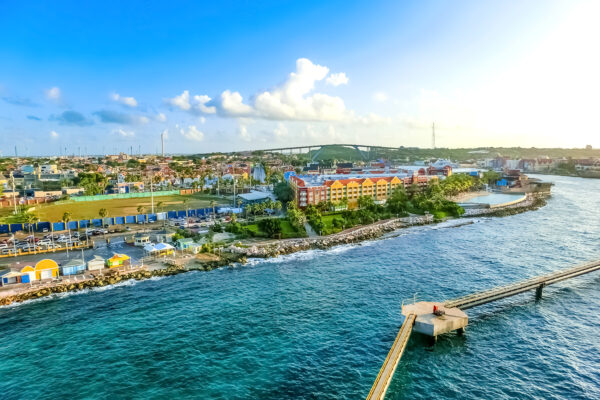
The new government of Curaçao has accepted Dutch supervision of economic reforms it is expected to carry out as part of a COVID-19 rescue plan.
Parties led by Gilmar Pisas won the election in March on a promise to oppose supervision.
The now-prime minister defended his about-face by arguing Curaçao’s back was “against the wall.”
Which was the same argument his predecessor, Eugene Rhuggenaath, made in the election campaign, when Pisas rejected it.
Pandemic
The COVID-19 pandemic has deprived the tourism-dependent Dutch islands in the Caribbean of their main source of income. Pisas told reporters his government borrows 50 percent of what it spends. One in five workers is unemployed. Youth unemployment has reached 42 percent. 15 percent of the population is dependent on Dutch food aid.
The situation on Aruba and Sint Maarten is almost just as bad.
Without money from the European Netherlands, Pisas said Curaçao would be forced to cut pandemic support for households and businesses, reduce health-care spending and lay off civil servants.
Panel
The Dutch aid comes with strings attached. The Netherlands wants the islands to cut red tape, liberalize labor laws and reduce the cost of doing business.
Controversially, the reforms would be overseen by a panel of Dutch administrators.
All three islands rejected the panel, arguing it infringed on their autonomy.
But the proposal had broad support in the Dutch parliament, where parties pointed out that the islands didn’t keep promises to reform in the past.
Aruba and Sint Maarten came around, isolating Pisas.
Concession
In a final concession to the islands, the three-person panel would not be empowered to propose reforms but could only monitor those agreed between the island governments and the European Netherlands.
Reforms would still need to be approved by the island legislatures.
Aruba, Curaçao and Sint Maarten are autonomous countries within the Kingdom of the Netherlands. The smaller islands Bonaire, Saba and Sint Eustatius are overseas Dutch municipalities.
